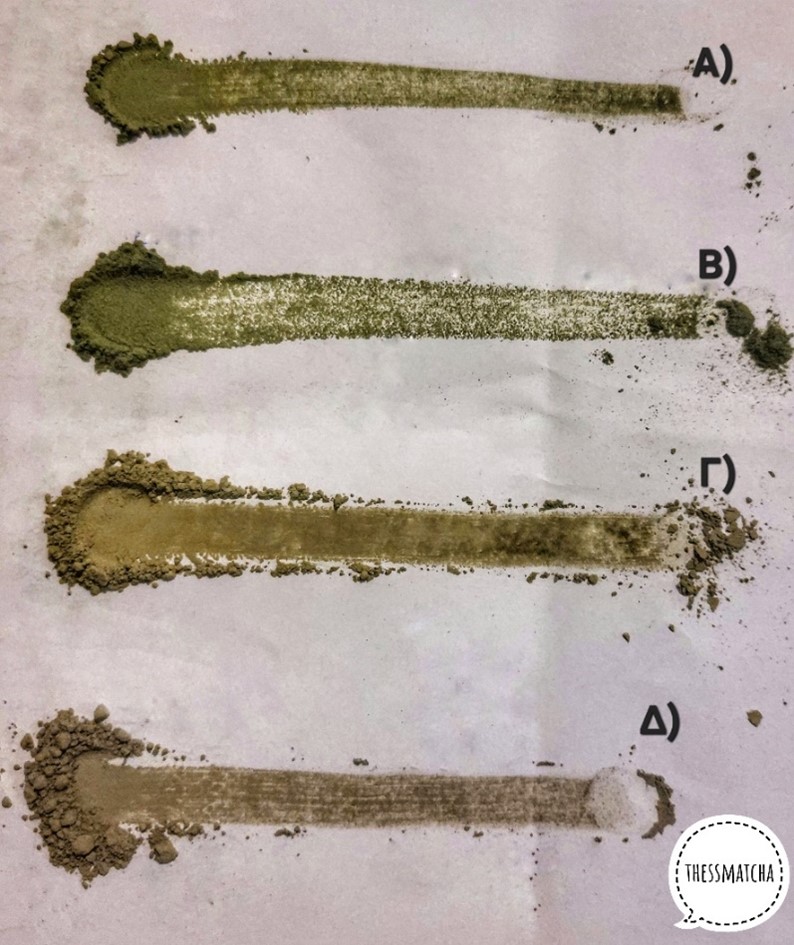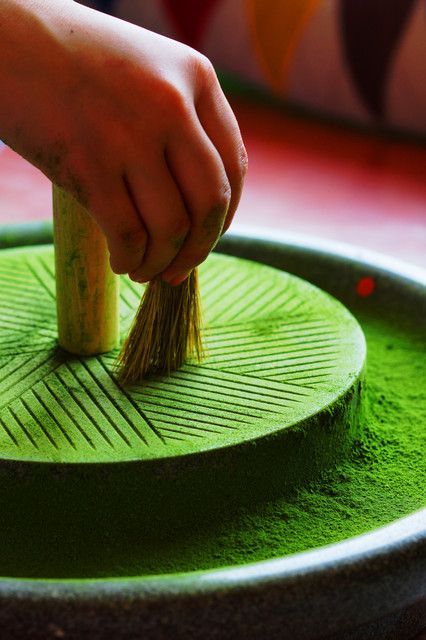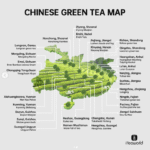Matcha in Greece: Quality vs. Cost – What we found

Matcha is undoubtedly the most viral drink of the last few years! It is the new fashion of the season with ever-increasing consumers in the Greek market, both for its unique taste and aroma, and for the tremendous health benefits of its consumption. In the Greek market there are various kinds of quality and non quality Matcha powders. Widely known is the quality category “Ceremonial”, which translates as “ceremonial” and which is the most expensive; its price can reach up to 4€/g. At the same time, there are many other qualities, the price of which is considerably lower than ‘Ceremonial’, at less than 1€/g.

But how do these prices relate to the quality characteristics of Matcha? How can we identify expensive from cheap Matcha?
Of course, different Matcha powders vary in cost based on their quality characteristics, related to color, flavor, aroma and other more specific factors (e.g. powder particle size). To distinguish a good quality Matcha:
- In terms of taste, matcha has an “umami” taste, i.e. it combines all four other flavours (tomato is an umami-flavoured food, for example). Matcha’s taste is attributed to the balance between its bitter components (phenolic compounds-antioxidants) and its “sweet” components (amino acids-most notably L-Theanine).
- It’s color should be deep and vivid green, reflecting the high chlorophyll levels of the powder. This is an indication that the shading of the leaves before harvesting was successful.
- The aroma of matcha powder should resemble that of seaweed (‘seaweed like aroma’). Particular attention should be paid when matcha acquires an unpleasant aroma due to possible spoilage by micro-organisms.
- In terms of taste, Matcha has an “umami” taste, i.e. it combines all four other flavours (for example, tomato is an umami-flavoured food). Matcha’s taste is attributed to the balance between its bitter components (phenolic compounds-catechins-antioxidants) and its “sweet” components (amino acids-most notably L-theanine).
- The size of the powder particles contributes, among other things, to the rich mouthfeel of Matcha. It should be between 5-15 µm. An easy way to determine if the size is in this range, is to spread a quantity of powder on a sheet of paper, with your index finger press the powder onto the paper and then draw a line downwards. The more uniform the line formed, there is a good first indication that the quality of the powder tested is good.
Finally, does the price match the quality of Matcha in the Greek market? (We analyzed Matcha powders of the Greek market)
Our team examined the quality characteristics of commercial Greek Matcha powders of various qualities and prices. The results showed that at the same price levels, the powders differed significantly, both in chlorophyll levels, which showed multiple differences (up to 5x), in phenolic levels (smaller differences, up to 1.5x) and in particle size as shown in the figure below. Powder C) was the best and corresponds to “Ceremonial” quality. This is followed by A), D) and B) (from best to worst). The powder containing the “Ceremonial” indication was qualitatively superior in all characteristics compared to the powders that did not carry the indication.

Therefore, the quality of Matcha is influenced by many factors and the selling prices vary, without necessarily corresponding to similar organoleptic characteristics. However, certainly the purchase of a “Ceremonial grade” Matcha ensures that the powder will offer the key elements that would satisfy most consumers. For those who want to switch to cheaper options, this can only be done through experimentation of flavours and personal preferences, since as it turns out, low-priced powders can differ quite a bit from one another. Combining it with milk (oat milk is recommended) is a good solution for those who find it difficult to consume Matcha.
*For greek audience, you can find part of this article on: https://www.vwoman.gr/matcha-pos-na-epilexete-tin-kalyteri-skoni-kai-ti-na-prosexete/
–thessmatcha is a group of scientists specialized in Matcha tea and tea powders, based in Thessaloniki, which organizes the first nationwide matcha workshops. You can find us on Instagram (@thessmatcha).
Athanasios Gerasopoulos,
Chemist BSc., MSc.
Evridiki Giota,
Chemist BSc., MSc.
